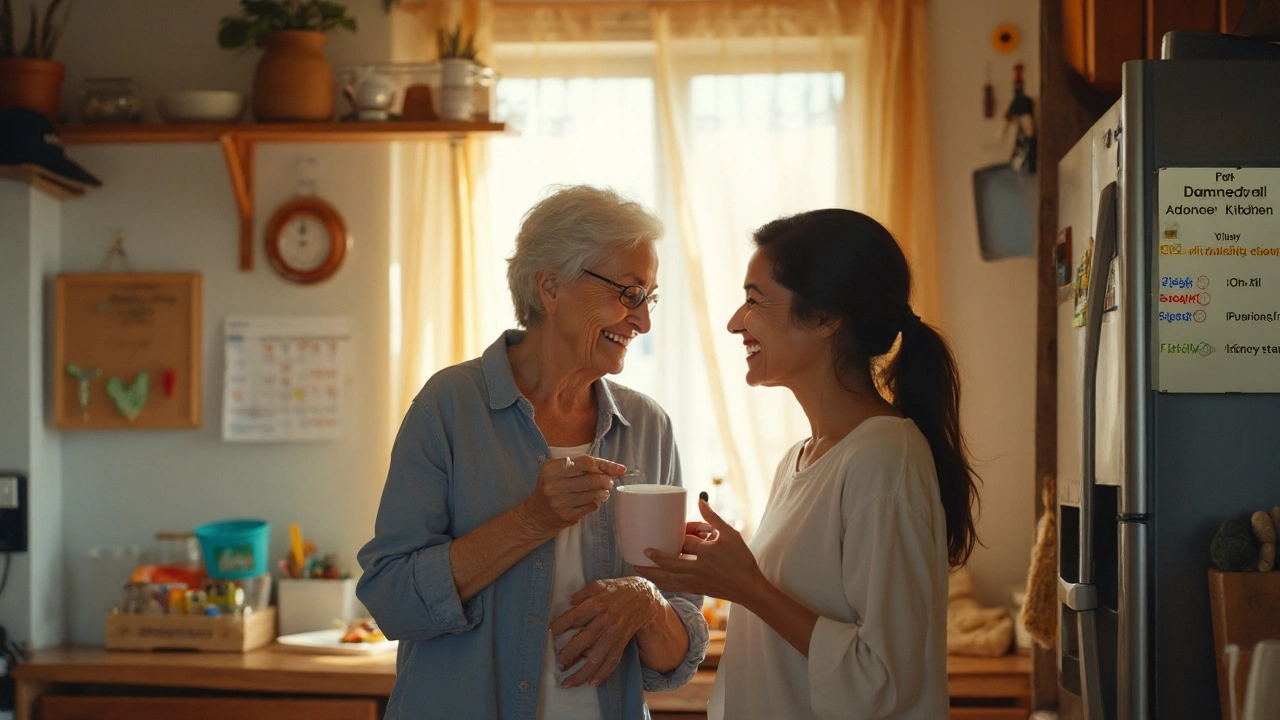- How to Split Pills Safely to Reduce Medication Costs Nov 20, 2025
- Viagra Alternatives: 8 Options to Consider for Better Bedroom Confidence Apr 23, 2025
- Uncover the Amazing Health Perks of Graviola – An Essential Dietary Supplement Feb 24, 2025
- Why Social Connection Matters in Dementia: Practical Guide for Caregivers and Families Sep 5, 2025
- How Medications Cross the Placenta and Affect the Fetus Nov 12, 2025
Social Interaction and Dementia: Why Connection Matters
Living with dementia can feel isolating, but staying connected makes a real difference. When people with dementia engage socially, their brains get a workout that can slow memory loss and improve mood. Even a short chat, a shared game, or a walk with a friend can light up brain pathways that otherwise dim over time. Below we’ll break down how social contact helps, and give you practical ideas you can start using today.
How Social Contact Helps the Brain
Every conversation triggers several brain regions – language, emotion, and memory. For someone with dementia, these flashes of activity act like tiny exercise reps. Studies show that regular social interaction can reduce the speed of cognitive decline by keeping neurons active and lowering stress hormones. It also encourages the release of oxytocin, a hormone that promotes calm and feelings of safety. The result? Better sleep, fewer mood swings, and clearer thinking during the day.
Simple Ways to Add Interaction Daily
You don’t need a fancy program to make a difference. Try these low‑effort ideas:
- Set a 10‑minute “talk time” after meals – ask about favorite recipes or childhood stories.
- Play music together and sing along; music sparks memory and invites spontaneous conversation.
- Invite a neighbor or volunteer for a short visit once a week; even a brief coffee break helps.
- Use simple games like cards or matching puzzles – they prompt interaction without overwhelming the mind.
- Take a short walk outside and point out familiar sights; nature adds a calming backdrop to the chat.
Consistency beats intensity. A daily five‑minute chat is more valuable than a once‑in‑a‑while hour‑long session. Keep the tone light, avoid correcting mistakes, and focus on the joy of sharing.
Caregivers also need social support. Join a local dementia‑care group or an online forum where you can swap tips and vent when needed. When you feel connected, you’re better equipped to stay patient and creative with the person you’re caring for.
Finally, track what works. Note which activities spark the most smiles or conversation, and repeat those often. Over time you’ll see a pattern of what truly lifts mood and mental sharpness.
Remember, social interaction isn’t a cure, but it’s a powerful tool that can slow dementia’s impact. Small, consistent connections add up, giving both the person with dementia and their loved ones a better quality of life.
Why Social Connection Matters in Dementia: Practical Guide for Caregivers and Families
- Elara Whitlock
- Sep 5, 2025
Clear, practical guidance on how social connection improves mood, cognition, and daily life for people with dementia-plus checklists, examples, and troubleshooting.
